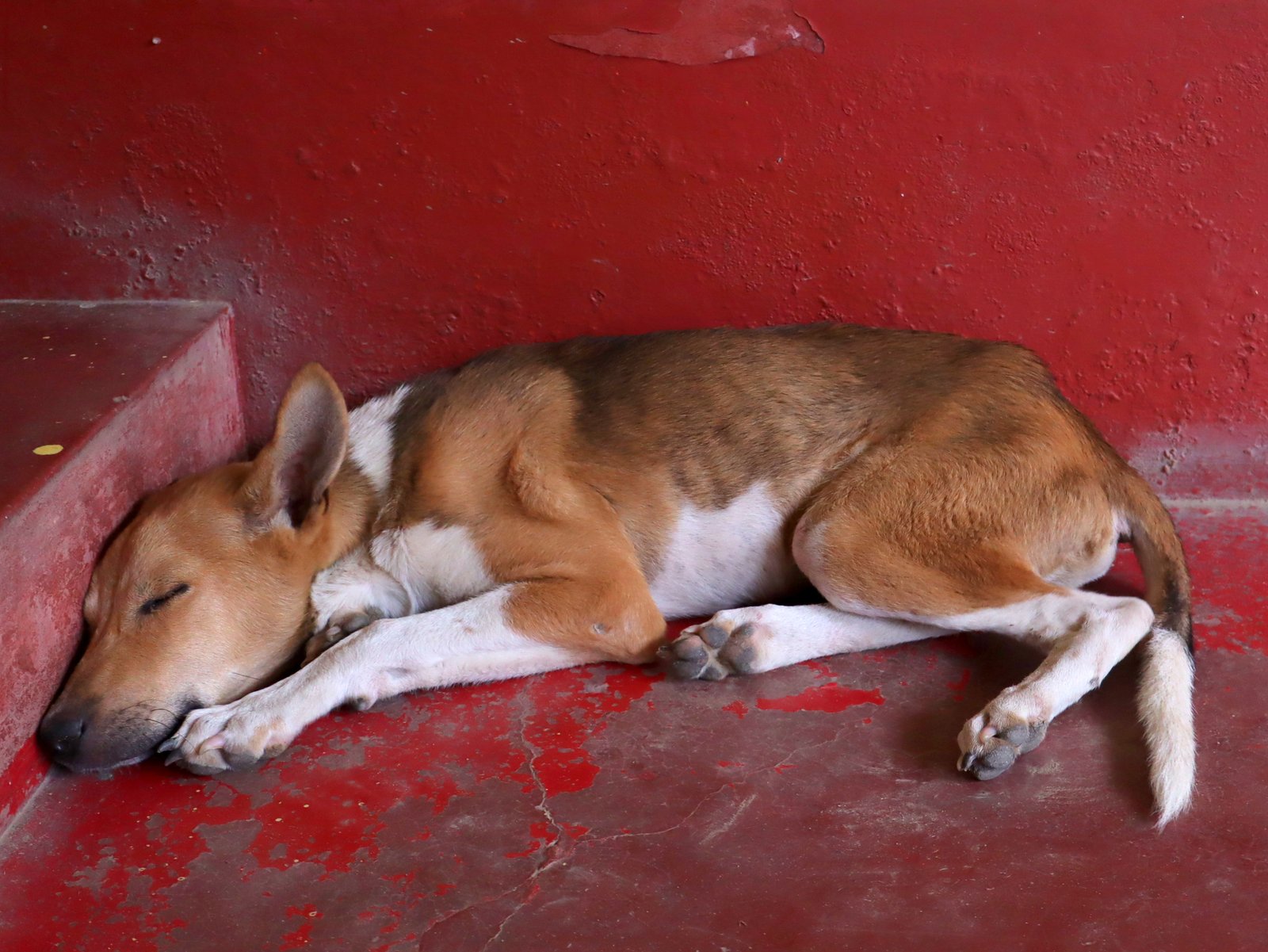
Dog
Yes. Even an animal. Because he’ll hear Hare Kṛṣṇa from the pure devotee, that will not go in vain. He’ll give prasādam. He does not know, but the devotee out of compassion gives prasādam, chants Hare Kṛṣṇa. He also gets the opportunity of hearing. So he’ll also be liberated. One dog, during Caitanya Mahāprabhu’s time, he also became liberated. There is a history. Śivānanda Sena’s dog, he was liberated by the grace of Lord Caitanya.
(710903 – Lecture Festival Appearance Day, Bhaktivinoda Thakura – London)
A dog accompanied Śivānanda Sena and the devotees, and that dog was so fortunate that after seeing the lotus feet of Lord Caitanya Mahāprabhu, it was liberated and went back home, back to Godhead.
(CC Madhya 1.140)
Suhṛdaḥ means well-wisher for everyone. His heart is full of well-wishing for everyone. “Everyone” means for Indians, nationals? No, sarva-dehinām. Sarva-dehinām, all bodies, even for the cats and dogs. A devotee wishes welfare even of the cats and dogs by giving him prasādam: “Take little prasādam.” So the dog will be also . . . there is an instance during Caitanya Mahāprabhu’s time. Devotees from Bengal were going to see Caitanya Mahāprabhu, and on the way a dog also began to follow them. So the leader of the party, Śivānanda Sena, he was also giving food, prasādam, to the dog, and they had to cross one river, and the boatman would not take the dog. Śivānanda Sena paid him some more money that, “You take the dog.” This is Vaiṣṇava that, “This dog has taken our company. He is going with us. How I can leave him behind?” So he paid more money, “Please take this dog.” This is called suhṛdaḥ sarva-dehinām (SB 3.25.21). And the dog was emancipated. He went to Caitanya Mahāprabhu, and he was sitting as dog, and Caitanya Mahāprabhu was eating something and throwing it to the dog. In this way, the dog got Vaikuṇṭha. This is Kṛṣṇa consciousness movement, that this consciousness, this sympathy for everyone, can dispatch even a dog to Vaikuṇṭha. Suhṛdaḥ sarva-dehinām.
(710221 – Lecture SB 06.03.28-29 – Gorakhpur)
Bhaktivinoda Ṭhākura is addressing, “My dear Vaiṣṇava, devotee of Lord Kṛṣṇa, you are ṭhākura. You are as good as Kṛṣṇa. So you accept me,” tomāra kukura, “you accept me as your dog.”
So he has sung a very lengthy song, tomāra kukura baliyā jānaha more: “So please accept me as your dog.” Then he describes, as a dog watches the door, no outsiders are allowed to come in. So he says: “I shall always watch your door. I shall not allow any non devotee to enter your house.” He is saying like that. “And for my food, whatever remnants of food you throw me, I shall be satisfied with that.” In this way he has presented himself as a dog to the devotee.
(690319 – Lecture SB 07.09.08-11 – Hawaii)
While going to Jagannātha Purī, Śivānanda Sena allowed a dog to go with him. He supplied it food to eat and maintained it. One day, when they needed to cross a river, an Orissan boatman would not allow the dog to get in the boat. Śivānanda Sena, unhappy that the dog had to stay behind, paid the boatman ten paṇa of conchshells to take the dog across the river. One day while Śivānanda was detained by a tollman, his servant forgot to give the dog its cooked rice. At night, when Śivānanda Sena returned and was taking his meal, he inquired from the servant whether the dog had gotten its meals. When he learned that the dog had not been supplied food in his absence, he was very unhappy. He then immediately sent ten men to find the dog. When the men returned without success, Śivānanda Sena became very unhappy and fasted for the night. In the morning they looked for the dog, but it could not be found anywhere. All the Vaiṣṇavas were astonished. Thus in great anxiety they all walked to Jagannātha Purī, where Śrī Caitanya Mahāprabhu met them as usual. Śrī Caitanya Mahāprabhu went with them to see the Lord in the temple, and on that day He also took lunch in the company of all those devotees. As previously, the Lord provided them all with residential quarters. And the next morning all the devotees came to see the Lord. When all the devotees came to the place of Śrī Caitanya Mahāprabhu, they saw the same dog sitting a little apart from the Lord. Furthermore, Śrī Caitanya Mahāprabhu was throwing remnants of green coconut pulp to the dog. Smiling in His own way, He was saying to the dog, “Chant the holy names ‘Rāma,’ ‘Kṛṣṇa’ and ‘Hari.'” Seeing the dog eating the green coconut pulp and chanting “Kṛṣṇa, Kṛṣṇa” again and again, all the devotees present were very surprised. When he saw the dog sitting in that way and chanting the name of Kṛṣṇa, Śivānanda, because of his natural humility, immediately offered his obeisances to the dog just to counteract his offenses to it. The next day, no one saw that dog, for it had obtained its spiritual body and departed for Vaikuṇṭha, the spiritual kingdom. Such are the transcendental pastimes of Śrī Caitanya Mahāprabhu, the son of mother Śacī. He even delivered a dog simply by inducing it to chant the mahā-mantra, Hare Kṛṣṇa.
(CC Antya 1.17 – 1.33)
The example of a dog is very significant in this connection. A dog naturally does not become a devotee at any time, but still it is sometimes found that a dog of a devotee gradually becomes a devotee also. We have actually seen that a dog has no respect even for the tulasī plant. Indeed, a dog is especially inclined to pass urine on the tulasī plant. Therefore the dog is the number one nondevotee. But Śrī Caitanya Mahāprabhu’s saṅkīrtana movement is so strong that even a doglike nondevotee can gradually become a devotee by the association of a devotee of Lord Caitanya. Śrīla Śivānanda Sena, a great householder devotee of Lord Caitanya Mahāprabhu, attracted a dog on the street while going to Jagannātha Purī. The dog began to follow him and ultimately went to see Caitanya Mahāprabhu and was liberated. Similarly, cats and dogs in the household of Śrīvāsa Ṭhākura were also liberated. Cats and dogs and other animals are not expected to become devotees, but in the association of a pure devotee they are also delivered.
(CC Adi 10.1 purport)
